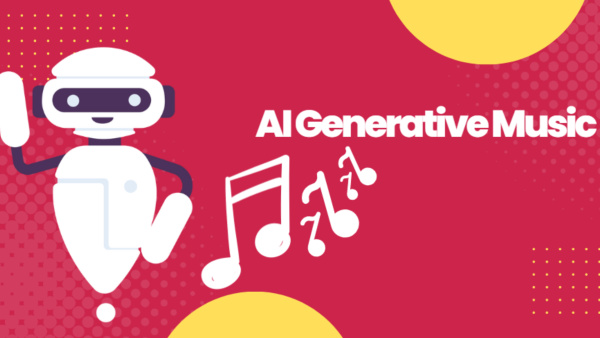Top 3 Best Generative AI Music Apps for Android in 2024
Discover the fascinating world of generative AI music apps like Mubert, Endel, and Aiva, revolutionizing the way music is created and consumed. Explore their features and impact.
2024-04-23
1. Introduction to Generative AI Music Apps
The world of music creation is undergoing a remarkable transformation with the advent of generative AI music apps. These cutting-edge technologies are harnessing the power of artificial intelligence to generate original music, opening up new realms of creativity and expression for artists, composers, and music enthusiasts alike.
Among the pioneers in this field are Mubert, Endel, and Aiva, each offering unique approaches to AI-driven music generation. These apps are not only captivating music lovers but also sparking discussions about the future of music creation and the role of AI in this artistic domain.
2. Mubert: The AI Composer
Features and Capabilities
Mubert is a groundbreaking AI music app that allows users to generate original compositions by providing simple text prompts or descriptions. Powered by advanced machine learning algorithms, Mubert can create complex musical arrangements spanning various genres, from classical to electronic.
User Experience
The app's user-friendly interface enables users to fine-tune the generated music by adjusting parameters such as tempo, instrumentation, and mood. Mubert also offers the ability to collaborate with the AI, allowing users to provide feedback and guide the creative process.
Impact on Music Creation
Mubert has the potential to democratize music creation by making it accessible to individuals without formal musical training. It can serve as a powerful tool for composers, songwriters, and producers, providing endless inspiration and creative possibilities.
3. Endel: Personalized Soundscapes
Adaptive Audio Technology
Endel is a unique generative AI music app that creates personalized soundscapes tailored to the user's activities and environments. Utilizing advanced algorithms and biometric data, Endel generates adaptive audio that adjusts in real-time to enhance focus, relaxation, or sleep.
Use Cases and Applications
Endel's adaptive audio technology has found applications in various domains, including productivity, meditation, and sleep enhancement. It offers a seamless and immersive experience, allowing users to create personalized sonic environments that support their specific needs.
Benefits for Creators and Listeners
For creators, Endel provides a platform to explore new frontiers in adaptive audio and soundscape design. For listeners, it offers a personalized and dynamic audio experience that adapts to their changing needs and environments.
4. Aiva: Empowering Composers
AI-Assisted Composition
Aiva is an AI-powered music composition tool that assists composers in the creative process. Aiva can generate original compositions or suggest melodic ideas, chord progressions, and arrangements by analyzing existing musical works and styles.
Collaborative Workflow
Aiva is designed to work in tandem with human composers, fostering a collaborative workflow. Composers can provide guidance and feedback, allowing the AI to refine and enhance the generated music, ultimately resulting in a unique and personalized creation.
Potential for New Musical Genres
By combining human creativity with AI-generated elements, Aiva opens up possibilities for exploring new musical genres and styles. This collaboration between human and machine intelligence could lead to innovative and boundary-pushing compositions.
5. The Future of AI in Music
Opportunities and Challenges
The integration of AI in music creation presents both exciting opportunities and challenges. While these technologies have the potential to democratize music creation and inspire new artistic expressions, they also raise questions about the role of human creativity, authorship, and the future of the music industry.
Ethical Considerations
As AI-generated music becomes more prevalent, ethical considerations surrounding intellectual property rights, fair compensation for artists, and the potential for AI to perpetuate biases or limitations inherent in the training data must be addressed.
Embracing Innovation
Ultimately, the future of AI in music will depend on how artists, composers, and the music industry embrace and adapt to these innovative technologies. By fostering a collaborative and responsible approach, the integration of AI could lead to a renaissance in music creation, pushing the boundaries of what is possible and enriching the artistic landscape.















